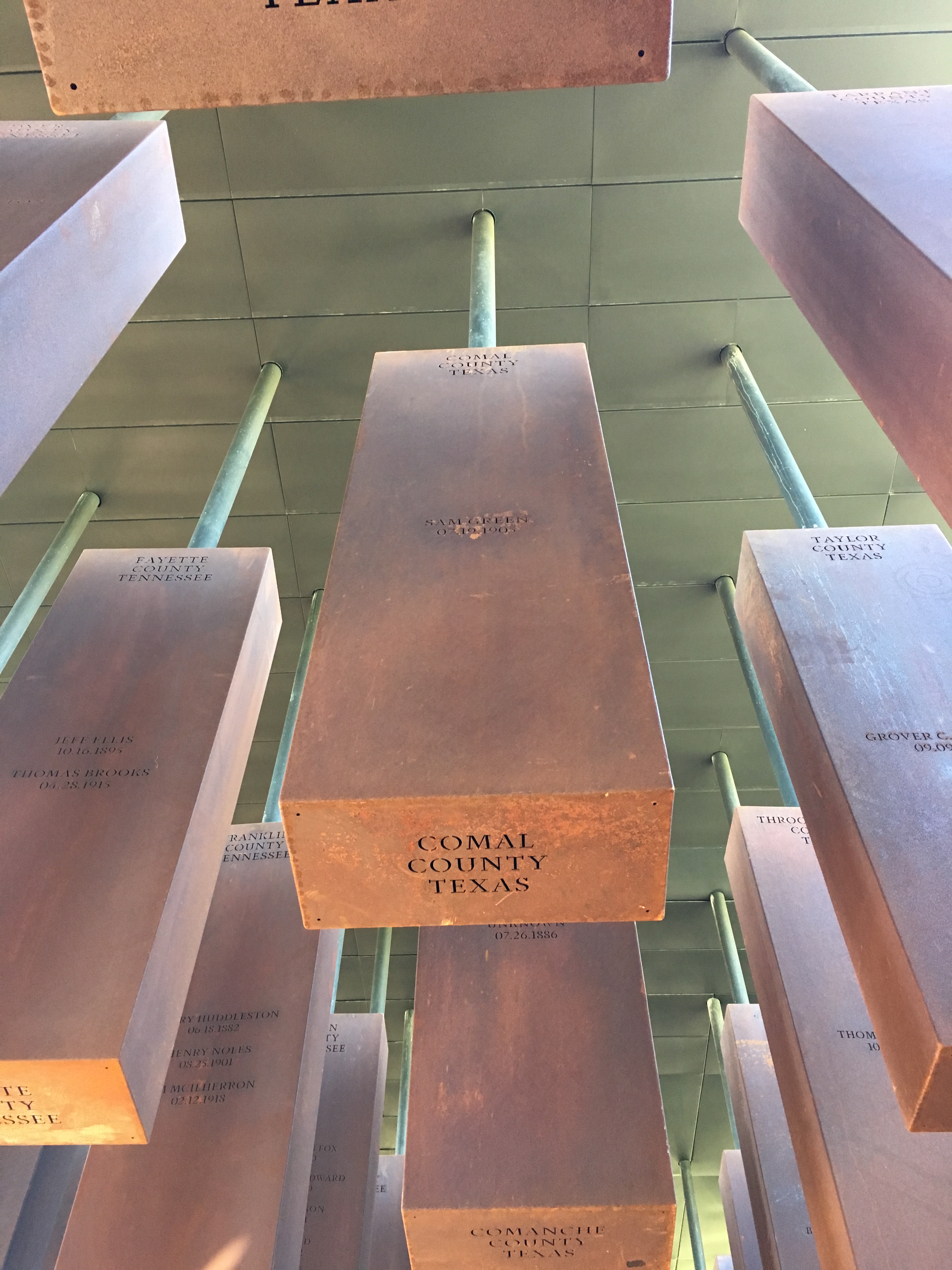Since it’s summer, it seems appropriate to recommend movies, books, and museums. Also, my name is Bekah, and if you think this is about the Incredibles, a mystery novel, or the McNay (ALL OF WHICH I LOVE!!!), you’re going to be super disappointed and probably mad. You’ve been warned.
Watching the events of the past few weeks, I’ve been wondering, what would Mister Rogers say about family separations? His concern was always with children—their wellbeing, their sense of self and security in a frightening world. Were he still with us, would PBS pull Fred Rogers out of retirement for a primetime PSA?
In the midst of all the chaos, we actually have a pretty good idea what Mister Rogers would say, because Morgan Neville has the direct quote, and a loads of other great documentary material packed into a 94 minute tearjerker, which is basically an instructional video on dealing with hostile politics and terrifying events.
In “Won’t You Be My Neighbor?” journalist Susan Stamberg, recounts Rogers’s advice that children needed to feel protected by their parents. They need to believe that the adults in their life could and would protect them, he believed. For Stamberg, this was difficult advice to reconcile with her own sense of vulnerability and the limits of her personal power.
Every parent knows what she means. But now imagine the parents who could not give their child that security in their home country…and then found that, by crossing into the United States they traded physical danger for psychological damage. A clear and crappy choice if ever there was one.
The release of “Won’t You Be My Neighbor?” on June 8, meant that most of us were seeing the film as the family separations were beginning to explode in the media. I’m sure I’m not the only one who felt devastated by Rogers’s more generous vision of the nation as a neighborhood, and who belongs in it.
Of course, Rogers, being a devout Christian, asked the question “won’t you be my neighbor?” as a response to another question, “who is my neighbor?” A question Jesus answered in the strongest of terms though the parable of the good Samaritan.
In case you missed that parable, it involves religious and political folks stepping over their bleeding countryman in order to avoid dirtying their hands, when a religious/ethnic enemy finally comes to his rescue. The Samaritan and Jew, he points out, are neighbors.
Rogers had something to say about good Samaritans. He famously called them “helpers.” In frightening situations, he said, “look for the helpers.”
While he credits his mother with this advice, it’s worth noting that in seminary, Rogers would have learned a deeply biblical definition of “helper”, translated from the word ezer, a powerful and effective aid or protector. It is a word used to refer to God.
The following Rogers quote is not in the movie, but taken from the Fred Rogers Center’s professional resources page:
“We live in a world in which we need to share responsibility. It’s easy to say ‘It’s not my child, not my community, not my world, not my problem.’ Then there are those who see the need and respond. I consider those people my heroes.”
Looking over the news coverage coming from the border (and steadfastly ignoring all punditry from elsewhere), I see a lot of helpers. I see a lot that Mister Rogers would celebrate. But a humanitarian crisis of this magnitude begs the question, the same question posed by journalist Tom Junod when he was interviewed for the documentary: Did Fred Rogers succeed in his mission to influence America?
The answer, of course, is mixed. The documentary suggests that America in 2018 would overwhelm Rogers, the champion of the neighborhood. The humanitarian crisis at the border is just the latest systemic assault on human dignity.
In The War on Neighborhoods Daniel Cooper and Ryan Lugalia-Hollon examine mass incarceration, over policing, and the high cost of being “tough on crime.” It reminds us that what is happening on the boarder has been happening daily in communities of color for decades.
Children in Austin, the Chicago neighborhood studied by Cooper and Lugalia-Hollon, often grow up without one or both of their parents, who have been taken out of the picture by one of two “methods of justice”—either the criminal justice system as we know it, or the “street justice” system that is, really, just the other side of the same coin, they say. A coin taken from the pockets of poor communities of color and placed into the pocket of politicians, the drug trade, and the prison system.
“To varying degrees, both systems remove key actors from family and community life, and as a result, both perpetuate cycles of trauma within communities.” (The War on Neighborhoods, pg 69)
Throughout the book, Cooper and Lugalia-Hollon beat a continuous call for collective responsibility, similar to what Rogers (and the Bible) advocate.
“Issues of unemployment, addiction, and mental health were increasingly reduced to questions of personal decision-making. The policy focus moved away from neighborhood-level need and toward problematic people, rarely drawing the connection that the former provides the environment needed for the latter to emerge,” (The War on Neighborhoods, pg 44)
They too look for the helpers, and extend that charge to local, state, and federal governments, who can choose whether to invest in services that strengthen communities—education, healthcare, economic development—or continue the cycle of incarceration, which, as the book points out, is not as easy to avoid as most white people like to think.
“Arrests, felony trials, and prison time all become the basis for society to further condemn these residents, to pile on stressors, removing them from existing supports, and further narrowing any redemptive opportunities,” (The War on Neighborhoods, pg 14)
Because I was reading this during the same weeks that I was watching the border events, and “Won’t You Be My Neighbor?” I took particular notice when the authors cite deterrence as one of four reasons given for incarceration. Of course the threat of punishment is not a deterrent, as everyone knows. Deterrence requires “making an example” of someone so that others will not follow. Interestingly enough, this deterrence argument, which at least some members of the Trump administration believed to be at the heart of Attorney General Jeff Session’s family separation policy, is also cited as a common reason for lynching.

If books and movies are one staple of summer vacation, family trips are certainly another. This summer my daughter and I, with two longtime friends, made the trip to Montgomery, Alabama to see the Memorial for Peace and Justice and the Legacy Museum, which commemorate the victims of lynching and tie the practice to the very practices of mass incarceration chronicled in The War on Neighborhoods.
I took my four-year-old to the memorial and to the museum, because I actually think she is old enough to learn about these injustices, as long as I am by her side, and we skipped the most graphic parts. I was by her side to assure her that she was safe, and that because she was safe, she could be a helper.
We ended our trip to Montgomery with a trip to the Freedom Riders museum so that we could embed the idea of being a helper right alongside the reality that injustice exists.

But now I have to figure out how to talk to her about family separation. I have yet to do it, because I don’t want her to be afraid that it will happen to her. But when I explain why it won’t happen to her, I have to explain a larger injustice. It will never happen to her…because she’s genetically white…she was born with legal status…because her parents make a lot of money…because she’s lucky. I’m still trying to figure out how to do that.
I wish I had Mister Rogers for guidance.
We are left to imagine what Fred Rogers would have said to all of us in a primetime PSA, which would have gone viral on YouTube. I imagine that he would have reminded us that children need their parents, and they need helpers—adults supporting them and keeping them safe. He would have gently admonished us to be those helpers. Then I imagine that he would have pulled out the Daniel Striped Tiger puppet to talk about being afraid…and then maybe mad. And then, I think that there would have been a third element. I think he would have said something in Spanish, to remind us all that the migrant children are part of our neighborhood, and to try to give them some kindness to hold onto, if at all possible.

0 thoughts on “Review: One Movie, One Book, One Vacation, One Humanitarian Crisis”
awesome Bekah!